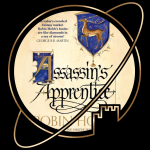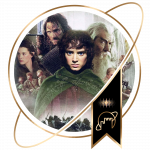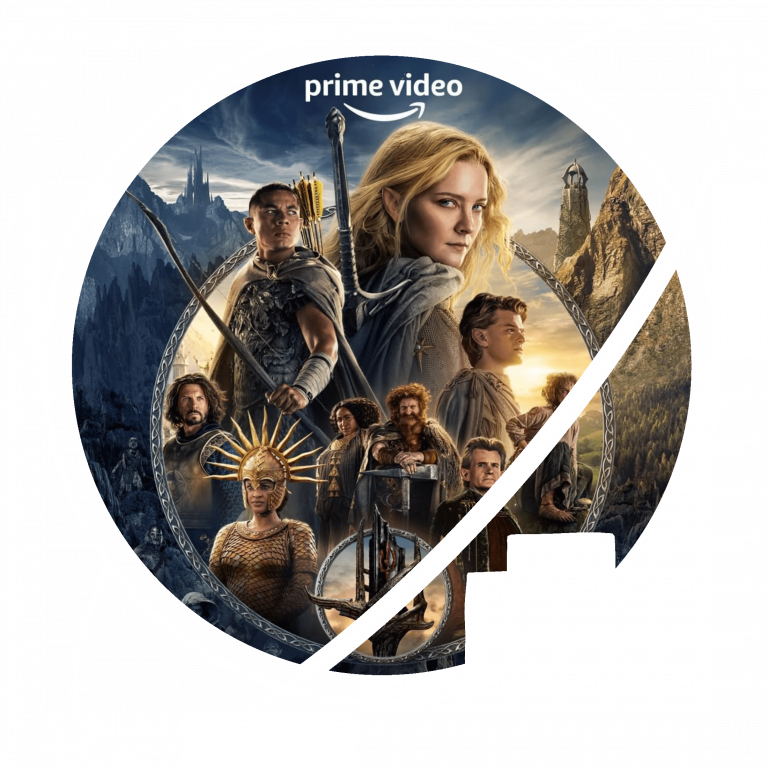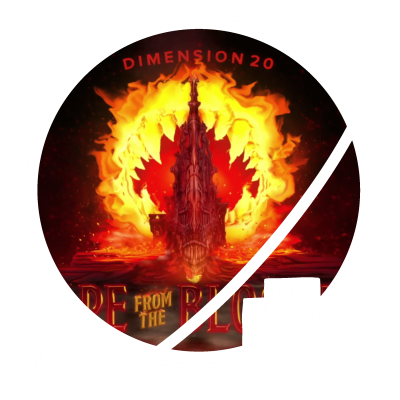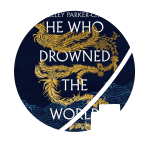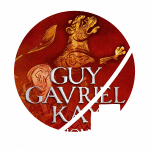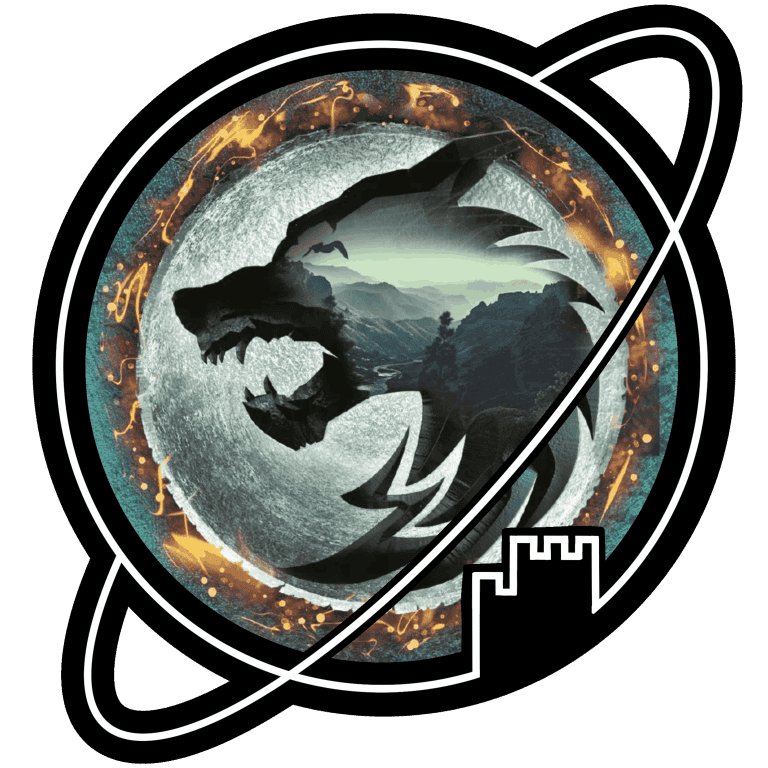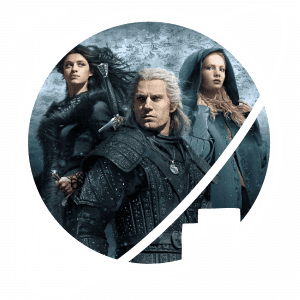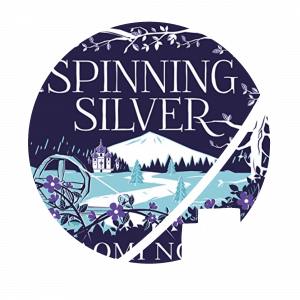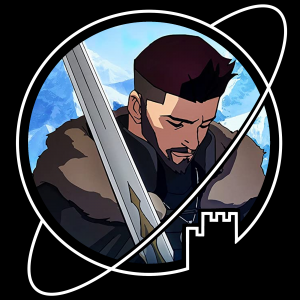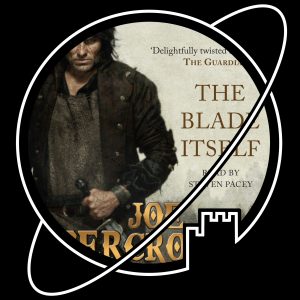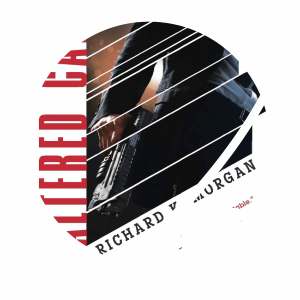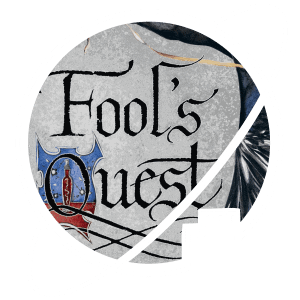A curated Collection of Fantasy and Science Fiction Media
Recent Updates
- Video Game developed by Supergiant Games
- Directed by Greg Kasavin
- Published by Supergiant Games
- Published 17 September 2020
- Rogue-like, Action
- Platforms: Microsoft Windows, MacOS, Nintendo Switch, PlayStation 4, PlayStation 5, Xbox One, Xbox Series X/S
- Playing time: 20 to 100 hours (or as much as you can sink in!
Zagreus, son of Hades, god of the dead, wants to escape from the underworld to see the surface, where the mortals live, and to discover his heritage. His father is dead set on preventing this from happening. In this rogue-like video game, battle through chambers filled with hordes of Hades’ minions, slain heroes, and mortals undergoing punishment as you enlist the help of the Olympian gods to fight your way to the surface.
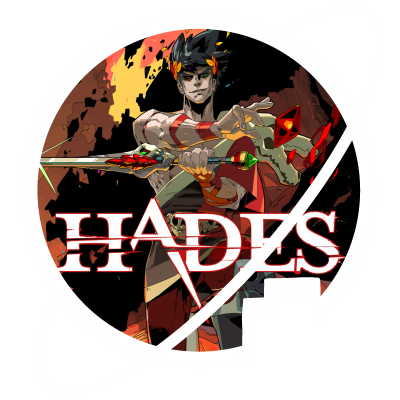

Hades is a charming, Greek mythology-inspired roguelike where you play as the prince of the Underworld. Your goal? To break out of the Underworld, fighting your way through Tartarus, Asphodel, Elysium, and the Temple of Styx.
Now, it took me roughly 80 attempts to escape from the Underworld. That is: 80 attempts before I realised that escaping wasn’t the end of the game, but the beginning. I think it’s fair to say that I am Bad At This Game.
Being awful at this game puts me in an excellent position to review it, of course. Difficult games are probably fun if you’re good at them (this is wild conjecture as I have never been good at a game ever). However, if you suck at a game and you still enjoy it and spend over 100 hours on it, the game probably has more to offer than just the challenge of beating it.
The absolute highlight of Hades for me is the music, written by Darren Korb (who also voices protagonist Zagreus). Do you need to focus? I swear the Hades soundtrack will whip you right into gear. The gameplay is also great, and while you can apply “technique” to your play, you can also smash some buttons over and over and still win – eventually. The game is visually stunning as well. Both the character portraits and environments are atmospheric and charming. Last but not least, Hades has a story that keeps you coming back. You may need to turn on God mode eventually to keep from dying all the time, but I can guarantee that you won’t put the game down until you’ve reached those end credits.

Lotte recommended Hades to me at a time when I could really use a quick-paced game with relatively little stakes to distract me, and I’ve played it since whenever I need to get my mind off things. I remember running the game for the first time after I installed it, seeing the Supergiant logo, and going ‘oh, that’s why’ – every singe one of their games I’ve played or seen is great. Hades is no exception.
Hades is a rogue-like in which you battle through four regions of the underworld and several bosses to finally escape to the surface to progress the story. Along the way, you receive rewards that upgrade your character for the duration of the run, as well as currency and rewards that you can spend between runs to make your character stronger for next runs or add variety to your encounters.
Like other rogue-likes, Hades is the kind of game that constantly makes you want to do another run just to try to get the perfect build, to try to get right combination of powers and upgrades to completely destroy this time. Luckily, the game gives you some tools to ensure some level of control over your build, so you actually have a decent chance to get to the combos you’re trying for.
Unlike, for example, Vampire Survivors, Hades actually requires a fair amount of skill (or, if you’re Lotte, you just button mash and it takes you 80 attempts to escape the first time… up to you :p). Especially the tougher boss battles are difficult to beat if you’re not constantly moving and positioning to get your attacks off. I found that as I was playing, I did not only get better because of the upgrades I bought, but also because I got better at dashing Zagreus around the chambers without accidentally ending up in the magma.
What is fascinating about this game, is that it constantly pretends you are done – only to then reveal there is another layer you haven’t yet discovered, be it more regions, more bosses, more weapons, weapon upgrades, abilities, difficulty settings, etc. Like Lotte, I was at first hyper-focussed on trying to reach ‘the end’ of the game and to escape to the surface, only to realise that that was effectively the ‘start’ of the main story. I’ve continued playing since, and now I mostly focus on either escaping with a number of handicaps turned on, or on getting the coolest build I can think of. And it keeps being fun!
There are just two things I can think of that would improve this game in my opinion. The first is adding slightly more guidance on the directions your progress can take you. I found that I was regularly just doing a thing hoping for the thing to be relevant, only to realise later that I I just spent my precious currency on an upgrade that would only help in about 20 more hours of gameplay. I was chatting with Lotte and she recommended equipping a certain thing, only for us to realise a couple minutes into the confused conversation that it was simply something that I hadn’t unlocked yet, but had no idea even existed. I still haven’t unlocked it, and I have no clue how to. I could look it up, of course, but that feels like cheating. The second possible improvement would be shortening the runs just slightly. Right now, I think they take up to about ~45 minutes (I have about 30-35 minutes on the timer in my quicker runs, but some interactions stop time). I feel a runtime of 20-30 minutes would make it just that bit easier to squeeze out a second run an evening, finish one during your commute, or quickly wrap up a run that’s not going your way.
I realise I’ve written almost an entire review about this game without mentioning the aesthetic – shame on me. Hades looks fantastic. Combat is clear and each of the gods has a distinctive style that is easy to recognise on the screen. More importantly, the character illustrations that pop up whenever you are talking to someone are amazing – my jaw dropped the first time I saw one. Combined with great voice acting, the art makes your encounters with the denizens of the underworld and the Olympians, which might easily have been annoying interruptions, an absolute pleasure.
Overall, Hades is a great game that I think everyone with an interest in action-packed games or Greek mythology should give a shot. And don’t just believe us – Hades won the first and so far, only Hugo awarded to a video game! Now that’s impressive.
Hades II, the first Supergiant sequel, has just been announced, and I cannot wait for it to drop – so make sure you play the first instalment during the wait!
- Written by J.R.R. Tolkien
- Published 21 September 1937
- Stand-alone prequel to The Lord of the Rings
The hobbit Bilbo Baggins is very content with his comfortable life, when the Wizard Gandalf and a company of thirteen dwarves invite him on a quest to travel the continent and rob a dragon of his treasures.
Bilbo soon finds himself in a dangerous world, where trolls, goblins, spiders and mortal’s greed make for thrilling adventures.
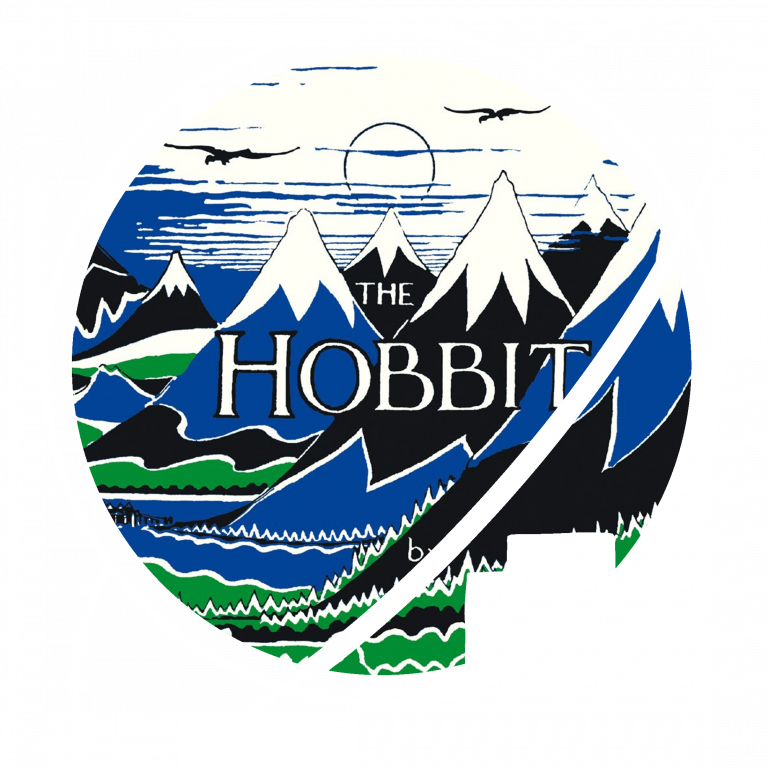

When you go to your preferred search engine and use the prompt “classic fantasy book”, it’s almost a given you’ll find The Hobbit among the search results. The tricky thing with classics is that – though the reason for their initial popularity can probably always be recognised – it’s not always garantueed they withstand the test of time. After recently rereading this book, however, I’d say Tolkien’s The Hobbit still holds up.
People often refer to The Hobbit as a children’s story. This is indeed how it originated, but I believe most people tend to forget that children’s literature often contains themes and stories that are also relevant for adults. Furthermore, Tolkien’s prose in The Hobbit is a lot less dense than in The Lord of the Rings, making it a lot more accesible.
Sure, The Hobbit is at times prone to silliness and has a severe lack of female characters, but it’s fast-paced and ultimately contains some very serious morals. Furthermore, the clever use of an omniscient (unreliable?) narrator makes it a very relevant study case for people interested in writing themselves. For people that are already familiar with the extensive lore of Middle-Earth, The Hobbit also provides a lot of intruiging questions, if you’re willing to read between the lines.
If you’re still not convinced, I’d like to emphasize that this story contains musical dwarves and one of the coolest dragons in dragon history. Just saying…

I saw Jop uploaded a review of The Hobbit, so I knew I had to follow suit some time soon.
The Hobbit is an amazing children’s fantasy book that also works for adults. Even though the scope and worldbuilding of The Lord of the Rings make that the real bible of the fantasy genre, I find The Hobbit to be Tolkien’s best work in terms of writing and pacing.
Part of why The Hobbit is so great, is that Bilbo is such a great main character. He is both courageous – often described as ‘plucky’, which I find an amazing word – and at the same time, his emotions feel very real. He is afraid, he is homesick, he is lonely at times, he wants to do the right thing and not disappoint his friends but he also wants to just be at home and be done with it all. That makes his courage all the more inspiring – easy to be a hero when you’re Conan the Barbarian, quite different when you’re Bilbo the fifty-year-old halfling with food and comfort as main passions in your life.
Even though Bilbo is a relatively unorthodox main character, the rest of The Hobbit is quite traditional (though it leans a bit more towards fairy tale and a bit less towards grim fantasy). I love the mischievous elves, the bickering trolls, the song-singing goblins, the riddles in the dark. The world feels perilous and mysterious right from the start of the book, while the stakes, danger and violence slowly build towards the climax.
As a kid, I absolutely loved The Hobbit and as an adult, I still do. If you haven’t read it, please go do so – it’s easy to get into and an absolute cornerstone of the Fantasy genre.
Tagged:
See also:
- Television series created by Patrick McKay and John D. Payne for Amazon Prime
- Based on the Lord of the Rings by J.R.R. Tolkien
- Released in 2022
- Starring Morfydd Clark, Ismael Cruz Córdova, Charlie Vickers, Robert Aramayo, Nazanin Boniadi, Daniel Weyman, Owain Arthur and others
- 8 Episodes
Amazon Prime’s long-expected take on Tolkien’s Lord of the Rings based on the Appendices to the Return of the King chronicles the lives of several younger versions of characters we know from the Lord of the Rings and their attempts to prevent Sauron’s rise to power: Galadriel and her hunt for the enemy, Elrond and his diplomatic struggles torn between loyalty and friendship, Elendil and his role at court in a kingdom where every string is tensed to the breaking point.

So, we’ve finally come to it – our review of The Rings of Power. I’ll admit I’ve flip-flopped a bit: initially, based on the trailers, I was afraid it was going to be a trainwreck. So when I actually watched the first episode and it was halfway decent, that was a big relief. But as the season progressed, there were more and more things that rubbed me the wrong way. There are elements to it that save it from a bottom-tier rating, but overall, the poor writing choices land it in decidedly ‘meh’ territory. I feel the half star on top of the two is generous (perhaps earned only through being a Tolkien IP). Let’s dig in!
To start with the positives, I think that the show’s visuals are mostly fantastic. The CGI establishing shots of places like Númenor, Khazad-Dûm and Lindon are everything you could want from them. Similarly, all of the landscapes and most of the costumes, weapons, ships, etc. are great, with a couple of misses here and there. I have no qualms with the casting or acting (even if a lot of the excessively flowery dialogue must be an absolute struggle to get through as an actor). I recognise that the story departs from canon in places but I don’t mind that in and of itself – as long as the choices make some sense.
I feel the core of the problem, though, is the writing. My feelings are probably best summarised in two main issues: first, The Rings of Power prioritises scenes, moments, and disparate story elements over the overall narrative; and second, the series keeps stumbling on scale.
The Rings of Power has the need to constantly feel epic. Main characters in a fight? Epic. Supporting characters running away from a handful of orcs? Epic. Ship sailing? Epic. Somebody hands someone a sword? Epic. The result is that by the end of it, nothing feels epic because everything feels epic. And because the series spends so much time on these epic moments, the actual narrative is forced into the background. This is made worse because many of the epic moments are ‘unearned’ – they are not properly set up by narrative that tells us the stakes and makes us care for the characters at risk. Sometimes, the ‘epicness’ is even derived from knowledge the viewer (hopefully) has on the basis of watching the Peter Jackson trilogy or reading the books. As a result, a lot of ‘moments’ and ‘reveals’ that are played up cinematically make no sense within the context of the Rings of Power alone.
Of course, there are also some cool subtle references like similar cinematic shots, a recognisable sword in the background or a throwaway line that sounds familiar. But unfortunately, more often than not the references feel very much forced or overdone, as if The Rings of Power thinks reflecting The Lord of the Rings is more important than telling a story of its own. Perhaps the inclusion of the Harfoot (proto-Hobbit) plotline is a good example: the line isn’t bad, but why do we need to have Hobbits at all in this story on (supposedly?) the fall of Numenor? The plotline doesn’t contribute anything to the main story except slowing it down. It feels like they were shoehorned in because people expect Hobbits in a Tolkien IP. The same goes for the story of the Stranger intertwined with the Harfoots’ and to some extent, even the presence of the Dwarves. It feels like the writers wanted to include everything in this one season to reel in fans of all races. The result is that while there are a lot of cool scenes and recognisable moments, the story as a whole feels like loose sand.
This is part of the ‘scale’ problem I mentioned: it just feels like the writers bit off more than they could chew, or at least, more than they could fit in a single season. There are just too many plotlines going on. Consequently, few of them move forward very far – and still it feels like some moved too fast or without proper groundwork. This is especially apparent in the final episode, where a lot has to happen all at once. In the end, the first season feels like a lot of set up for things to come (and the writers are already moving the goalposts in that direction). But since the next season’s apparently a couple of years away, the anticipation will probably have ebbed away – and I’m hardly interested in rewatching what we already got.
At the same time that the writers tried include way too much in the scope of this one season, the scale of some of what they did show seemed way off – especially the Southlands. It felt like the entire region was reduced to a single village of ramshackle huts. And how did those riders happen to arrive in that one particular village right on time – is Middle-Earth really that small? And how on earth are 100 horses and 100 men supposed to fit on that ship? And while the establishing shot of Khazad-Dum was great, why do we spend all of the rest of our time in small tunnels? Are those six trees really the orchard the Harfoots were travelling to for the entire season? The list goes on.
In conclusion, I think I ought to come back to my first impression: The Rings of Power has hits and misses, but for me in the end, the misses outweigh the hits. I won’t say that your time watching this will be wasted, but there are a lot of other things I would recommend first. I’m thoroughly… whelmed.

I have to admit I wasn’t as excited about this show as some of my fellow curators. I love the Lord of the Rings, but experience has taught me that it’s usually bad news when a beloved intellectual property gets added on to. I was still optimistic, though.
I have to admit I quite enjoyed the show at first. It wasn’t terribly exciting, but we watched it together every week, so I had the encyclopedic Tolkien knowledge of both Jop and Peter on my side. On my own, I would have understood very few of the references made to the original trilogy. The establishing shots were very pretty, the elves were silky, and the dwarves were fun.
It wasn’t until I missed two of our watch parties and had to catch up on my own that the cracks were really beginning to show. I found myself struggling to focus and frankly unable to care about the show in the way that I cared when we watched together. I realised what I had actually enjoyed about the show had been making sassy comments and talking through “important” dialogue.
Look, the show does have a couple of things going for it. The scenery looks great, the actors do their best with what they’re given, and the relationship between Elrond and Durin was just extremely charming.
However, the pacing was off and the writing was clunky and uninspiring (though trying desperately to be deep). The story felt forced and the twist at the end left me cold. It’s definitely the kind of show I’d recommend only to those who’ve heard about it and don’t want to miss out on the hype. If you haven’t seen it yet, that is.

It seems we curators have finally found something to be of one mind on: the fact that The Rings of Power is neither bad nor mind-blowingly good.
As the others also mention, we watched the first season mostly together, and that greatly improved the experience. However, even without the company of my dear friends, there were elements of the series I enjoyed. I loved the visuals, the great shots of nature landscapes and Middle-Earth’s grand cultures. I liked the initial characterization of the main characters and some of the worldbuilding that the writers seemed to set up to fill in the blanks of Tolkien’s extensive mythology. I also respected the (underdeveloped) attempt at a much needed critique on the nature of evil, something that is missing in most of Tolkien’s works and adaptions thereof. And, last but not least, I absolutely loved the dynamic between Elrond (despite his haircut) and Durin. Every scene between these two was a pleasure to behold.
My 2,5 stars for this series are, broadly speaking, a result of the quality of the writing. Ironically, there were few moments where I thought the writing was actually bad. There were many moments, however, where I felt the writing was uninspired. Safe but without any zest.
I believe the overarching tension arc the writers were aiming for – the question of who is Sauron and where is he? – would’ve worked better if they had put their focus on the Eregion politics first. The inclusion of Númenor, though I loved the visuals and Elendil’s character, had little added value, in my opninion. Additionally, the storylines that were more focused on the goings-on of the characters – such as the Harfoots and the Southlands – could have used a little more thought, so that the eventual stakes felt more… emotional. Most characters hadn’t really earned my affection as much as the story intended.
On the whole, my aftertaste of The Rings of Power has a little tang of disappointment. Did the series work a fantasy series? I believe so. Did it have the soul of Tolkien’s Middle Earth? Not quite…

The copious amounts of Lord of the Rings references in this show made me feel very nostalgic, and because of that I quite enjoyed it at first. However, as the show progressed it became clear that the story itself just was not that good. The small moments of recognition when a familiar name or phrase was used were fun, but for me those moments in themselves were not enough to make up for all the areas where the show fell short. I just did not feel all that invested in any of the storylines or the characters, and there were so many conversations that were clearly meant to sound very profound, but actually just consisted of two people exchanging meaningless platitudes.
All this is not to say that I did not enjoy anything about it: I really liked the relationship between Elrond and Durin (despite the nonsensical plotline), and the visuals for Lindon, Khazad-Dûm and Númenor where fantastic. Every week, all of us curators got together to watch the new episode, and I had a great time watching it together with them and making fun of the more ridiculous moments. I will happily watch the next season as well, but even so I do wish that the show’s creators had been able to sell me on the story on its own merit.
Tagged:
See also:
- Dungeons and Dragons Livestream/Webseries
- Produced by Dimension 20 for Dropout.tv
- Released in 2019
- DM'd by Brennan Lee Mulligan
- Starring Amy Vorpahl, Mike Trapp, Matthew Mercer, Erika Ishii, Rekha Shankar, and Ify Nwadiwe
In this Dungeons and Dragons video series, a group of advisors to the Lord of Shadows must take charge after watching their Dark Lord die a sudden death. The Forces of Light are quickly advancing, and our vile villains learn to work together to coordinate their defence. The show features Brennan Lee Mulligan as the Game Master, and a cast of talented players who play the villains in this satirical tabletop spin on J R R Tolkien’s Lord of the Rings.

While Escape from the Bloodkeep takes a little longer to truly grab your attention than, say, Fantasy High, when it does it is absolutely delightful. This series does a great job playing off of its inspiration, The Lord of the Rings, but it doesn’t require you to be familiar with the work of Tolkien to enjoy the show.
To be honest, I’m just obsessed with anything Brennan Lee Mulligan does. Brennan is an outstanding Dungeon Master, and the show features some phenomenal NPC’s. Standouts are John Feathers and Avenash, but perhaps my favourite NPC is Stalker/Percival, who is their version of Tolkien’s Striker/Aragorn. I swear to God I almost cried every time Brennan did his character voice – I WEPT. There’s not many videos that make me cry with laughter, but video’s that do tend to be clips of Brennan’s campaigns.
As it’s a D&D “livestream” (though not live, and it is edited quite a bit for ease of watching), every other episode features a battle. I’m personally not a huge fan of battles in D&D, but some funny stuff does happen in the battle scenes in Escape from the Bloodkeep. I would recommend having this show in the background while you’re doing another task, like cleaning or doing something creative. I myself watch these kinds of shows while drawing. My attention does sometimes drift, but whenever the cast laughs I just rewind whatever I’ve missed and I’m all good.
Now there are plenty of pieces of media that take inspiration from the works of Tolkien, so what makes this series so special? For me, it’s the way the setting is changed. The story is very clearly inspired by Tolkien, and some characters have basically been copied and pasted into the narrative, but Brennan’s campaigns often include very “normal” elements that are very funny and out of place in a fantasy setting. Additionally, the show doesn’t need the references to be funny. Each moment that is funny “because of a reference to Tolkien”, is actually already funny on its own. The references are just a fun extra.
I would absolutely recommend Escape from the Bloodkeep to anyone who loves the works of Tolkien and tabletop RPG’s. It’s a great take on the villains being the main characters in a story, and while I don’t usually enjoy those types of stories, it really works well in this campaign. As with any Dimension 20 show, it’s very funny so I definitely recommend that you give this a watch!
Tagged:
See also:
- Book written by Shelley Parker-Chan
- Published 20 July 2021
- Part one in the Radiant Emperor Duology
She Who Became the Sun is an alternate history/historical fantasy novel set in Mongol-conquered China, in the waning days of the Yuan dynasty. It follows the exploits characters in different positions and on different sides of the struggle for power going on between the ethnically Mongol ruling elite and an ethnically Han uprising: a peasant girl trying to take up her brother’s fated path to greatness and an enslaved general struggling to reconcile the love for his master with his history of oppression.
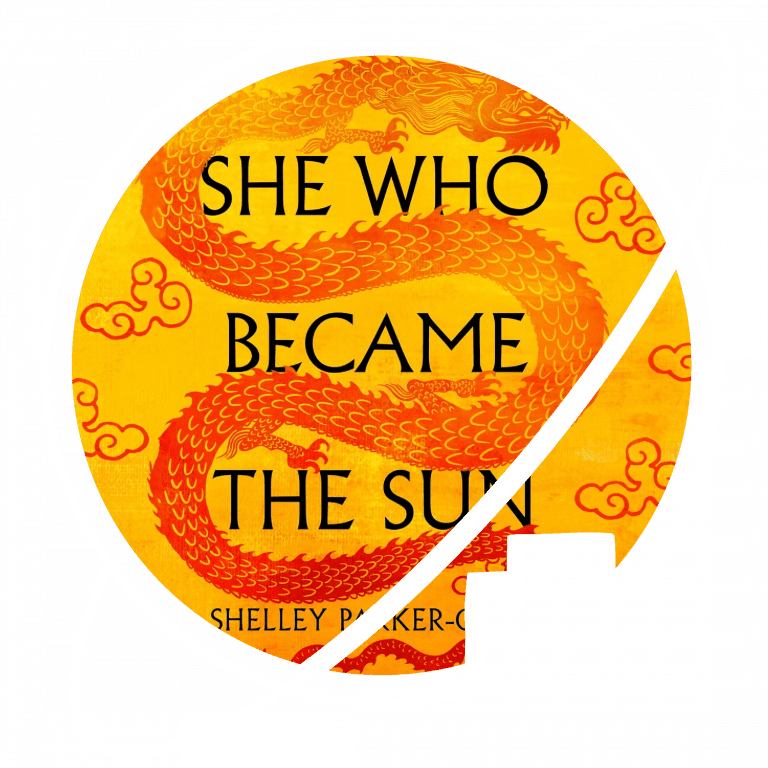

Listened to the audiobook with Natalie Naudus – an amazing narrator, who probably made the experience better than reading would have been because of her accurate pronunciation of Chinese names. Would definitely recommend listening!
I googled She Who Became the Sun because of its Hugo nomination, and the moment I read the blurb, I realised it had the potential to be amazing fo me. And boy, it delivered!
The book’s setting alone was enough to pique my interests, because fantasy novels set outside a semi-historical Europe seem to be a relatively recent development, and alternate history/historical fantasy is something I’ve wanted to read more of lately. And She Who Became the Sun is a masterclass on how to do both! I believe this book represents what 21st century historical fantasy ought to look like: whilst set in a non-generic medieval setting very much connected to the real world, it delves into themes such as discrimination, belonging, sexuality and gender in (what I believe to be) a historically plausible manner. I’m not one to accuse authors of ‘woke-ism’, but I do sometimes feel like the societal themes of today are lathered thickly on top of an ostensibly historical story in a way that makes little sense in-universe or even breaks suspension of disbelief. Parker-Chan shows us how it is possible to write a story in which these themes are apparently effortlessly woven into the fabric of the past. In an unforced manner, she makes us realise that some of GenZ’s struggles go back to medieval China. I cannot praise her for this achievement enough!
A lot happens in this book. But while there are a lot of new elements to wrap your head around, at the same time it follows a comfortable, familiar, and satisfying trajectory: our main character Zhu, for example, fights her way from destitute girl to powerful woman through intelligence and sheer force of will. I liked Zhu and Ouyang as main characters: Zhu’s drive keeps the plot moving forward, while Ouyangs reflection (and his opposite point of view) provide the perfect counterpoints. Switching back and forth between them was always a pleasure and kept to pace from being overwhelming.
Despite everything that happens, She Who Became the Sun is clearly the first part in a series: neither Zhu’s nor Ouyang’s story are finished by the end. But the book’s arc is concluded and while I am going to pick up part two the moment it is released, the ending is satisfying enough that I don’t think it is necessary to wait for the full story to be released first.
Long story short: She Who Became the Sun might be the best book I’ve read all year (though I’ve just started Leviathan Wakes, which might just compete for that title…). To be honest, I am convinced She Who Became the Sun should have taken the Hugo ahead of A Desolation Called Peace – which I also loved. The combination of novelty, comfort, themes, and historical groundedness was absolutely superb. Luckily, Parker-Chan bagged the well-deserved Hugo for best new writer, so at least she left a winner. She Who Became the Sun is borderline Collection material – and I’m not convinced I’m not going to submit the entire series at some point anyway. The only reason I didn’t rate this book five stars is that the I felt that perhaps sometimes, Zhu’s successes came to her just a bit too easily – but that is a minor nit pick in what is overall an amazing book.
Tagged:
See also:
- Book written by Andrzej Sapkowski
- Translated by Danusia Stok
- Published in 1993 in Polish, in 2007 in English
- Stand-alone short story collection in The Witcher universe
Geralt of Rivia is a Witcher, trained to fight monsters of all shapes and sizes.
As Geralt travels the continent in search of bounties to earn his coin with, he is confronted with a difficult truth: some monsters are fairer than others, and some monsters are not even monsters at all.
 Read the translation by Danusia Stok, who might have to learn a couple of English technical terms for describing of armour (such as “greaves” or “fluting”), but did a great job otherwise!
Read the translation by Danusia Stok, who might have to learn a couple of English technical terms for describing of armour (such as “greaves” or “fluting”), but did a great job otherwise!
I try to maintain a ‘read the book first’-policy. For The Witcher, I thought I was keeping to my policy, because I thought I had read The Last Wish. It turns out I might have read the first couple of stories, but I definitely did not read them all. As a result, I can only conclude that I already broke the rule way back when the first video game was released, and I’ve continued to break it with the other games and even a couple of episodes of the TV-series.
Still, it was really good going back to the source material again to see what the original looked like.
The Last Wish is a short story collection with a frame narrative, which scores it a lot of points before we even consider the stories themselves: I love that kind of story structure.
The setting of The Last Wish sits in an interesting intersection: Sapkowski’s world is a high fantasy world, but it conforms more to fairy tale and folklore logic than it does to the modern expectations of the genre. It is far from rainbows and unicorns, though, because Sapkowski clearly draws from the grim original versions of fairy tales before they got Disney-fied.
The Last Wish is very traditional in other ways, however. Geralt is a rather stereotypical stoic alpha male who tries to save everyone through limitless violence and is misunderstood and maligned because he is different.
The stories are rather male gaze-ey – the book opens with a sex scene an Geralt is sure to get some in most of the tales. It was written over thirty years ago, however, so I guess the genre (and the expected audience) were just different back then.
Underneath that layer, however, The Last Wish is a nicely light, high paced introduction to the world of The Witcher, with tightly written prose that leaves the stoic main character always just a little mysterious. The individual tales might not have the emotional impact or depth of plot of a full-length novel, but for this short story collection, I really don’t mind.
The Last Wish has scratched an itch, and I am really looking forward to continuing the series. Since Lotte already scored Blood of Elves at goodwill and dumped it on my shelf of shame some time ago, I am set to continue Geralt’s adventures in the near future!

After enjoying almost every other piece of media in The Witcher universe, fate finally enabled me to check out the source material, a collection of short stories about Geralt of Rivia and his adventures as a witcher.
To directly cut to the chase, I thought Sapkowski’s prose was pleasant to read. With a lot of “show” and little “tell” and altogether short scenes, it’s easy to race through the different stories in this collection. The episodic format perfectly suits the setting, which is primarily defined by grim representation of well-known fairy tales and Polish folklore, grey moralities and dry humour. The way Sapkowski builds his narrative is something I haven’t encountered earlier, simple but effective, with multiple occasions in which the reader is invited to fill up the blanks themselves. It is a storytelling technique I’d like to try myself one time.
I enjoyed The Last Wish, but I can’t help but wonder if it still holds up if you’re not already taken in by the universe and its characters. Though the stories occasionally offer some good food for thought with their themes, there is little else. There are some elements of mystery, but the other building blocks of the stories can often be reduced to violence and an ambiguous role for the female characters, who might often come across as strong, but are certainly also catered to the male gaze. In that regard, some might see The Last Wish as just another sword and sorcery fantasy novel.
Tagged:
See also:
© 2023 – Escape Velocity – A Curated Collection of Fantasy and Science Fiction Media
Privacy Overview
| Cookie | Duration | Description |
|---|---|---|
| cookielawinfo-checkbox-analytics | 11 months | This cookie is set by GDPR Cookie Consent plugin. The cookie is used to store the user consent for the cookies in the category "Analytics". |
| cookielawinfo-checkbox-functional | 11 months | The cookie is set by GDPR cookie consent to record the user consent for the cookies in the category "Functional". |
| cookielawinfo-checkbox-necessary | 11 months | This cookie is set by GDPR Cookie Consent plugin. The cookies is used to store the user consent for the cookies in the category "Necessary". |
| cookielawinfo-checkbox-others | 11 months | This cookie is set by GDPR Cookie Consent plugin. The cookie is used to store the user consent for the cookies in the category "Other. |
| cookielawinfo-checkbox-performance | 11 months | This cookie is set by GDPR Cookie Consent plugin. The cookie is used to store the user consent for the cookies in the category "Performance". |
| viewed_cookie_policy | 11 months | The cookie is set by the GDPR Cookie Consent plugin and is used to store whether or not user has consented to the use of cookies. It does not store any personal data. |







